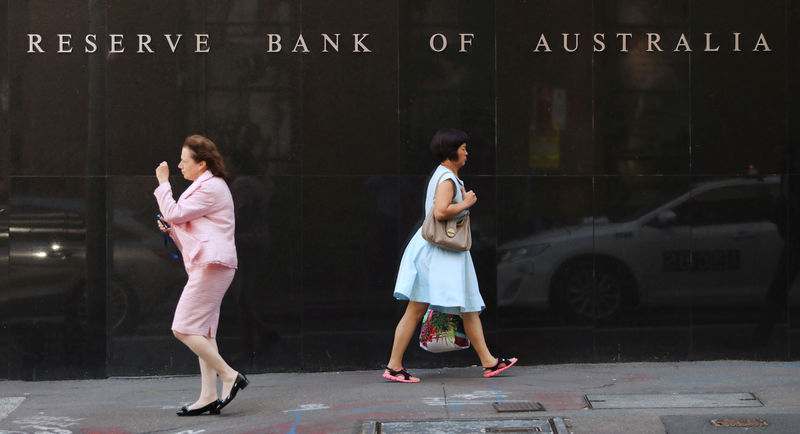By Swati Pandey
SYDNEY (Reuters) - Australia's central bank marked a 26th straight month of stable policy on Tuesday, reinforcing market bets that rates will remain low for an extended period amid tighter credit conditions and lukewarm inflation and wages growth.
In a widely expected move, the Reserve Bank of Australia (RBA) ended its October board meeting with rates held at an all-time low of 1.50 percent.
Governor Philip Lowe acknowledged credit conditions were tighter but added that mortgage rates still remained low and there was "strong competition" for borrowers of high credit quality.
"Growth in credit extended to owner-occupiers remains robust, but demand by investors has slowed noticeably as the dynamics of the housing market have changed," Lowe said.
"Credit conditions are tighter than they have been for some time."
Home prices in Australia's once-booming property market have slipped in every single month since late last year though Lowe hasn't displayed any unease over this trend so far.
Regulatory restrictions on lending to property investors together with greater scrutiny on banks' lending behavior have put a brake on skyrocketing prices.
Australian banks are under the microscope for dodgy practices with an interim report from a powerful quasi-judicial Royal Commission inquiry out last week trashing the reputations of some of the country's biggest companies.
While the RBA made no mention of the Royal Commission or the interim report in Tuesday's short policy statement, the central bank is set to release it's biannual Financial Stability Review on Friday.
The Australian dollar
"We think that the full effects of tighter credit conditions and falling house prices have yet to be felt. That means the labor market will tighten only slowly and inflation won’t rise much," said Paul Dales, chief economist at Capital Economics.
"Our view is that the Bank won’t raise interest rates until the second half of 2020."
Indeed, the most distant futures contract is for March 2020 <0#YIB:> and that has only 20 basis points of tightening priced in.
Lowe remained upbeat about the A$1.8 trillion economy and has repeatedly said in recent comments that the next move in rates is likely to be up rather than down.
Stubbornly low inflation has been a major headache for policy makers, undershooting the RBA's 2-3 percent target band for more than 2 years now while wage growth is crawling near record lows at 2.1 percent.
"The low level of interest rates is continuing to support the Australian economy," Lowe said.

"Further progress in reducing unemployment and having inflation return to target is expected, although this progress is likely to be gradual."